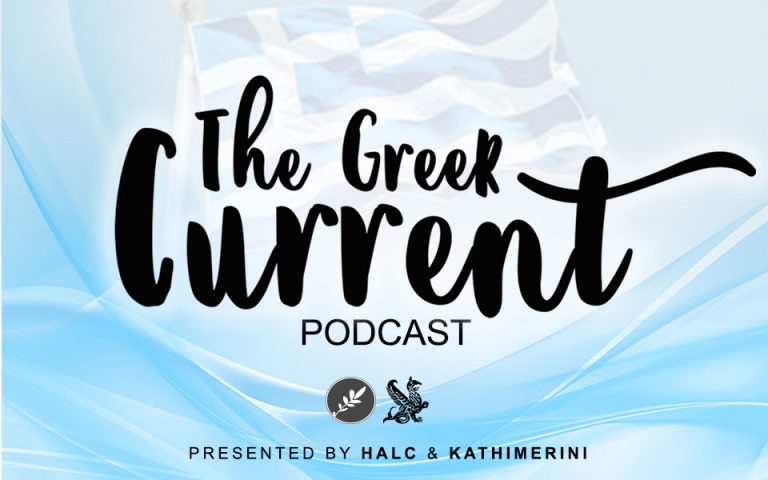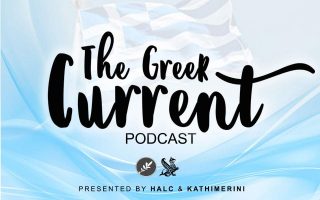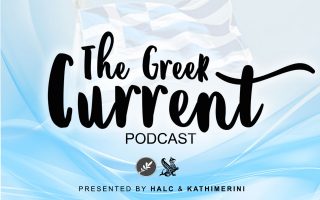Amberin Zaman, Al-Monitor’s chief correspondent covering major stories on the Middle East and North Africa, including Turkey, joins Thanos Davelis to get to the bottom of the rumors around whether Erdogan’s White House visit was canceled or not.
With commemorations of the Armenian Genocide taking place across the world, there is a renewed fear that the lessons of “Never Again” have been forgotten following Azerbaijan’s attack on Nagorno Karabakh and its continued threats.
Changes to Greece’s Golden Visa scheme are set to kick in at the end of the summer. This will see increases in the minimum amount needed to invest in order to secure a residence permit in an effort to tackle the country’s housing crisis.
With investments in Greece on the rise, Michael Arghyrou, the head of the Council of Economic Advisors for Greece’s Finance Ministry, joins Thanos Davelis to look at how these investments are transforming Greece’s economy, and to bust some of the myths around investments in Greece.
Since emerging from its international bailouts and a decade-long economic crisis, the Greek economy is now surging. Despite the positive outlook, many Greeks are still struggling from the crisis.
Vassilis Nedos, Kathimerini’s defense and diplomatic editor, joins Thanos Davelis to explore Defense Minister Nikos Dendias’ plan for a defense system for Greece similar to Israel’s Iron Dome, discuss the view from Athens following Iran’s attack on Israel, and look at the key takeaways from the EU summit on Cyprus.
Thanos Davelis caught up with Larry Notheis, the Chief Deputy Director at the California Conservation Corps, on the sidelines of the “Our Ocean” conference in Athens to look at how the California Conservation Corps model can be applied in Greece, and how these partnerships can make a difference in protecting the oceans, preventing and fighting wildfires, and more.
The memoirs of former German Finance Minister Wolfgang Schaeuble were recently released in Germany. As expected, Greece features heavily.
Endy Zemenides, the Executive Director of the Hellenic American Leadership Council, joins Thanos Davelis to recap the main takeaways from last week’s Delphi Economic Forum in Greece, where HALC had an important presence, leading discussions on the role of the diaspora, the importance of Cyprus, the Middle East post October 7th, and the future direction of American foreign policy.
Rich Goldberg, a senior advisor at the Foundation for Defense of Democracies with a deep expertise in sanctions policy who previously served on the White House NSC, joins Thanos Davelis to look at why we need to be paying attention to this new flotilla set to depart Turkey for Gaza, which has the potential to spark a diplomatic crisis.
Nadine Maenza, the President of the IRF Secretariat, a Global Fellow at the Wilson Center, and the previous chair of USCIRF, joins Thanos Davelis to look at what a resurgent ISIS means for the region, particularly in the autonomous zone in north east Syria, and break down why we need to put the spotlight on Turkey’s role in this ISIS comeback.
Giorgos Lialios, a journalist at Kathimerini covering issues related to the environment, joins Thanos Davelis to talk about the new marine parks Greece is creating, look into the upcoming Our Oceans Conference, and more.
Sinan Ciddi, a non-resident senior fellow at the Foundation for Defense of Democracies (FDD), joins Thanos Davelis to look at why Turkish President Recep Tayyip Erdogan is taking steps to restrict exports to Israel now, and break down how this fits into the broader post-election narrative after the oppositions sweeping victory on March 31st.
What can Thucydides tell us about our world today? Professor Andrew Novo, a scholar of ancient and modern Mediterranean history and strategic studies, joins Thanos Davelis to look at the lessons we should take away from Thucydides in a new era of great power politics.
Migration is top of the agenda this week in Cyprus, with President Nikos Christodoulides calling for the EU to step in to help Cyprus deal with a surge in arrivals on its shores.
With wildfires already breaking out in Greece, Derek Gatopoulos, a correspondent for the Associated Press who has been covering news in Greece for more than 25 years, joins Thanos Davelis to look at how Greece is looking to overhaul its wildfire response in preparation for this summer’s wildfire season.
With the EU elections on the horizon, one party in Greece, Greek Solution, is seeing a notable surge in support. The rise of this far right nationalist party also mirrors broader trends in the far right across Europe, and many are beginning to ask whether this resurgent far-right is here to stay.
Vassilis Nedos, Kathimerini’s diplomatic and defense editor, joins Thanos Davelis to look into a special visa program Greece launched for Turkish visitors who arrive on Greece’s islands, and explore where it fits into ongoing efforts to maintain calm in the Aegean.
Amberin Zaman, Al-Monitor’s chief correspondent covering major stories on the Middle East and North Africa, including Turkey, joins Thanos Davelis to break down the results from Sunday’s municipal elections in Turkey, what this historic defeat means for Erdogan, and look at whether the opposition’s resurgence can now reshape Turkey’s national politics.
Alan Makovsky, veteran Turkey analyst and senior fellow at the Center for American Progress, joins Thanos Davelis to examine how Turkish President Erdogan finally snagged an invite to the White House.
Sean Mathews, a Greece based journalist covering the broader region, and George Manginis, the academic director at the Benaki Museum, join Thanos Davelis to break down how the search for an antique can give us insight into Thessaloniki’s rich history, and look at how current efforts to shine a light on the city’s past cosmopolitanism are increasingly important in a changing region.
A few weeks ago Greece passed a law allowing the operation of private, non-profit universities, including allowing foreign private universities to set up branches in the country.


